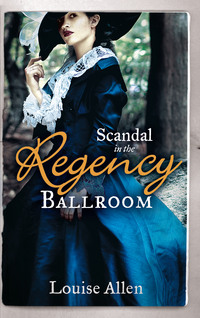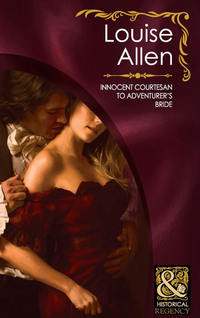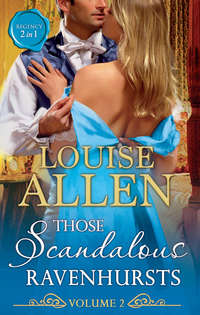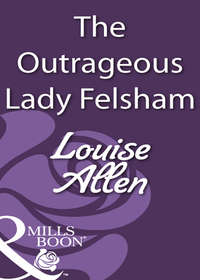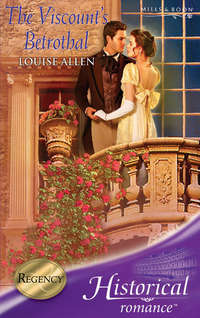
Полная версия
The Lord and the Wayward Lady
Nell tiptoed across the marble, her worn shoes making virtually no sound. The door was on the latch, she opened it and was out into the busy late-morning street. A few brisk steps and she was behind the shelter of a waiting hackney carriage. She kept pace as it set off at a walk, held up by traffic, then slipped into Stafford Street. There, I am safe, she told herself, fighting the urge to run. He will never find me now.
Chapter Two
The rope was safely locked in the bottom drawer of the desk. It might as well have been in plain view on the top and hissing at him like the snake it so resembled for all the good that hiding it away did. Marcus thrust the papers that littered the desk in the library back into their folder and contemplated going into the study. But he felt uncomfortable using it when his father was in town. The older man did virtually nothing on family business these days, but even so, to commandeer his desk felt uncomfortably like stepping into his shoes.
He tried to concentrate on writing to his younger brother instead. He would say nothing of the circumstances, merely that their father had suffered an attack, but was now resting and the doctor was sanguine about a recovery, given time and care.
There was no point in agitating Lieutenant the Honourable Hal Carlow. The last they had heard, Hal was confined to his bed in Wellington’s Portuguese headquarters with a nasty infection caused by a slight sabre wound in his side. His regiment, the Eleventh Light Dragoons, had been sent back to England from the Peninsula the previous year, battered and depleted. Hal, predictably, had pulled strings to find himself some sort of attachment to another regiment out there and had promptly disappeared behind enemy lines on a mission.
Marcus could only be selfishly grateful to whoever had inflicted the wound that was keeping Hal out of trouble, although once convalescent, a bored and off-duty Lieutenant Carlow on the loose was a worrying prospect. As an officer, Marcus was frequently assured, his brother was a paragon, destined for great things and possessing the courage of a lion. Under any other circumstances he was a hell-born babe, determined, Marcus was convinced, to drive his brother to drink or the madhouse.
The sounds of a door slamming and raised voices reminded him that his other siblings were more than capable of achieving that without help from Hal. The redoubtable Miss Price was presumably thwarting one of Honoria’s wilder schemes while attempting to preserve Verity, wide-eyed in adoration of her sister, from the sharp edge of Honoria’s teasing tongue.
He tried to imagine the man strong-willed enough to take Honoria off his hands, and failed. The Season loomed ahead, full of opportunities for one sister to get into outrageous scrapes through unquenchable high spirits and the other, through sheer naïvety, to fall victim to every rake on the prowl.
The fog had descended again, blotting out the promise of the fine morning. Now, in mid-afternoon, it was thick outside the long windows, filling the room with damp gloom despite the blazing fire and the array of lamps.
That damned rope. He wanted to discuss it with his father, but the earl was sleeping. That it had something to do with that old business years ago, when his father had been hardly older than he was himself now, was beyond doubt.
Marcus looked up at the portrait that hung over the fire. Lord Narborough stared back: a virile man at the height of his powers, shoulders square, grey eyes blazing out at the watcher, wig elegant, fingers curled around the hilt of a rapier he could use as readily as he did his fine mind and quick wits.
George Carlow and his friends had faced the Revolution in France, the risk of uprising here, the justified fear of year upon year of bloody war. Close to the inner circles of government, they had existed in a hotbed of intrigue and spying, fighting not on the battlefield but amidst the familiar clubs and balls where the enemy did not wear a scarlet uniform but hid behind the facade of fashion and respectability. His father had plunged into that world of secrets and had lost his health, his peace of mind and his closest friends in the process.
Marcus folded his letter, tossed it to one side, got up and began to pace. That young woman. Miss Smith indeed. Was she an innocent tool of someone—her dark man—or was she involved in whatever mischief this man intended?
Instinct told him she was lying. Smith was not her name, and that was not the only falsehood. He could sense the tension in her as she answered him. And yet, he wanted to believe she was innocent of harm. That was presumably his masculine reaction to a remarkably fine pair of greenish hazel eyes, a glimpse of golden-brown hair and a voice that did provocative things at the base of his spine. Marcus frowned. He needed to listen to his brain for this, not other parts of his body.
She was too thin, he told himself. Even bundled up in that drab gown and shapeless pelisse he could tell that. He was not attracted to thin women. Marcus contemplated Mrs Jensen for a pleasurable moment. She was most definitely not thin, not where it mattered. And she would be waiting for their meeting; she had made that quite clear.
Dressmakers were not fair game for a gentleman, in any case. Miss Smith was a respectable young woman so far as chastity went, he would wager. The flare of anger and alarm in her eyes when he had stood toe to toe with her, that was surely not the reaction of a woman who would try to buy her way out of trouble with her body.
He got up and walked to the spot where they had stood so close, wondering if the faint scent of plain soap truly lingered in the air or if it was his imagination. Imagination, obviously. It was too long since he had given his last mistress her congé, tired of her petulance and constant demands. If the household was more settled, he could still go out tonight, conclude matters with the lovely Perdita. That would stop him thinking about Miss Smith.
Something pale clung to the folds of the sofa skirts. Marcus hunkered down to pick it up and found it was an inch of fine straw plait, a long thread dangling from it.
He pulled the bell rope. ‘Peters, ask Miss Price if it would be convenient for her to spare me a moment.’
His sisters’ companion came in promptly, bandbox neat, calm and collected as always. ‘Marcus?’ She smiled and took a seat as he resumed his. In private they had long since used first names, allies in maintaining order and decorum in the Carlow household.
‘What do you make of this, Diana?’ He passed her the fragment of plait and watched as she studied it.
‘It is a straw plait of course. Hat straw—it is too fine for anything else.’ She rubbed and flexed it between her fingers. ‘English, I would say. Very good quality and an unusual plait. I have never seen anything quite like it.’ She tugged the thread dangling from it and looked at him with intelligent eyes. ‘Our visitor of this morning is a milliner?’
‘She said she was a dressmaker, but it would not surprise me to know that was untrue.’
‘If she is working with expensive materials such as this, then she will be with one of the better establishments. Not necessarily of the very highest rank, but good.’
‘Could one narrow them down using that piece of plait?’
‘I should think so.’ Miss Price picked at it with her fingernail. ‘It is unusual enough to be the work of one plaiter, or perhaps from a village where this is a traditional pattern. I can give you a list of establishments to try.’
‘Thank you, I would be obliged. I would like to get my hands on that young woman.’ Diana’s fine eyebrows rose. ‘And drag her off to the magistrates,’ he added smoothly.
Within an hour Miss Price produced the promised list, by which time Peters had returned with Hawkins, the ex-Bow Street Runner that Marcus had found useful to employ in the past. He handed the man the piece of plait and the list. ‘I want to know which of these establishments uses this plait—without arousing suspicion.’
‘Aye, my lord. I’ll send in my daughters, they can say they are ladies’ maids, trying to track down an exclusive pattern for their mistress.’ He glanced down the list and bowed himself out. ‘I’ll be back by this time tomorrow.’
‘Who on earth is that man, Marcus?’ He looked up, startled to realize that he had been so deep in thought that he had not heard his mother come in.
‘Mama.’ He got to his feet as she settled on the sofa in a flurry of silk skirts and held out one immaculately manicured hand to the blaze. Despite the prospect of an evening at home and frequent visits to the sick room, Lady Narborough was exquisitely attired in teal-green silk and adorned with the Carlow opals. ‘An investigator. I wanted to track down the young woman who so upset Father this morning.’
‘I do not understand it.’ His mother turned her large dark eyes on him and he noticed with a pang the fine lines radiating from the corners. She was still a beauty, but no longer a young one, no longer so resilient. ‘What on earth was in that parcel that disturbed your father so much?’
‘A foolish practical joke. A cord. It appeared to be a snake. I assume Papa got up too suddenly and then, on top of that, was startled by what he thought was a reptile.’ Marcus shrugged negligently. If his mother knew the true nature of the rope, she would make the connection with the past, and he had no intention of worrying her with that if he could avoid it. ‘I imagine it will turn out to be one of Hal’s madcap friends playing a trick on me that misfired.’
As he intended, that was enough to turn his mother’s attention from the parcel to thoughts of her sons. ‘Your father is fretting,’ she said. ‘You know how he does when he is unwell. He wants to hold his grandchildren on his knee—and soon! It is too much to hope that Hal will oblige us. Every respectable young lady has been warned against him Seasons ago. You are the heir, Marcus. It is time you found yourself a wife and settled down, set up your nursery.’
It was a subject she returned to with increasing frequency these days. Perhaps it was natural, with an ailing husband, to seek comfort in thoughts of descendants, but he saw no possibility of satisfying her in the immediate future.
There were attractive women aplenty out there and many who caught his eye, but none of them were the kind a gentleman married. What he wanted, he knew, was maturity, intelligence and wit. Breeding went without saying, for he had his name to consider. Wealth was of lesser importance; he was in the fortunate position of not having to marry for money. As for looks—well, character was more desirable, although he did not imagine his chosen bride would be exactly muffin-faced.
But where to find her? ‘The Season is about to start, Mama. I’ll give it serious thought, I promise.’ Some young lady, fresh-faced, innocent, schooled by her mama to perfect deportment and without an original idea in her head would be the expectation for a man in his position. His heart sank.
What he wanted...green eyes, a determined chin, a voice like warm honey and the desperate courage to stand her ground and lie when a man his size, in a temper, tried to threaten her? Yes, that was the calibre of woman he wanted. Now he just had to find an eligible lady with the qualities possessed by a shabby, skinny milliner. Without the lying and the mystery.
‘My lord?’
‘Mmm?’ Startled, Marcus sat bolt upright in the chair by the fire. He hadn’t been dozing exactly, more brooding, he told himself.
Wellow was too well trained to appear surprised by anything the family might do. ‘I beg your pardon, my lord, but we thought you had gone out.’
‘Why? What is the time?’
‘Ten, my lord. Would you like me to have a supper laid out in the Small Dining Room?’
‘Good God.’ Marcus considered his club, then Perdita’s apartments, and found that, after all, the thought of a supper in his own dining room was more enticing. ‘I lost track of the time, Wellow. The family has dined, I take it?’
‘Yes, my lord, on the assumption you were at your club, my lord.’
‘Quite. Supper, if you please.’ He felt no enthusiasm for an evening of erotic negotiation with Mrs Jensen. Damn it, was he sickening for something?
What if he comes to the shop? Salterton, the dark man? What if he asks me what happened at Lord Narborough’s house? Do I tell him? Or lie? Do I try and find out about him and then tell Lord Stanegate? But he is a Carlow.
There Nell’s train of thought stuttered to a halt and she sat staring rather blankly into her cooling cup of black coffee. A night’s restless, dream-disturbed sleep had done nothing to calm her.
She was afraid of Salterton, she realized, although she did not know why. Something about him made her think of knives. But she was afraid of Stanegate too. He had power and influence, and however unwittingly, she had been the cause of his father’s collapse. Only he did not believe it was unwitting.
If only that were all. Lord Narborough was his father and he had been her own father’s friend, she knew that much. Something had happened when she was very young and her father was taken away. And then Papa had died and Mama had never smiled again—and she spoke the name of Carlow like a curse.
Over the years, growing up, Nell had pieced together a little. Papa must have done something wrong, she had concluded. But she was a girl and a child and no one worried girl children with hard truths, even when not knowing seemed worse than whatever it was that had plunged them into disgrace and penury after her father had gone. Perhaps Nathan and Rosalind had known more; they were older than she. But it had never been spoken of, and the far-off days when there was a big house and her memories of rooms full of treasures and a park might only be a dream, not truth at all.
Something bad, very bad, had happened to Papa. So bad that it stained them all with its tarnish, so bad that he...died.
Nell should hate the Carlows, she knew that, because her mother had told her that George Carlow was responsible for everything that had befallen them. Traitor, she had called him. False friend, treacherous.
But there was something about his son, the viscount, that seemed to fill Nell’s consciousness, to stop her thinking straight. And it was partly, she was honest enough to admit, a very basic attraction, something in his masculinity that called to the feminine in her. As though he was the man who haunted her dreams, her ideal, the man who would be her friend as well as her lover.
Fantasy. Marcus Carlow would haunt her in truth if he found her, there was no doubt about that. Nell shivered and put the cup down on the hearth. Her toast was getting cold. She nibbled it, telling herself that to huddle by the meagre fire, instead of sitting up at the table like a lady, was justified in this cold weather and had nothing to do with a primitive need for safety.
Yes, fantasy. Men were not like that god in her dreams, none of them, and viscounts would certainly have one use, and one use only, for unprotected milliners’ assistants.
She got up and put the dirty earthenware in a pail to wash up with her supper plates, then shook out her pelisse and tied her bonnet strings. Reticule, gloves, handkerchief. Her thoughts skittered away, back to the aching worry. Was Lord Narborough better? What had she done? He had seemed kind when that flustered young footman had shown her in. Tired, but kind. But that had to be a mask. What secrets was he hiding?
If her father was still alive he would be the same age as the earl. She wished she could remember him, but all that came back from that distant time was the sound of weeping and her mother’s curses.
Shivering with more than the cold, Nell locked her door and went down the stairs, narrow at first, then widening as she reached the lower floors. This had been a fine house once; traces of dignity still hung about the width of the doorframes, the bewebbed cornices, the curl of the banister under her hand as she reached the ground floor.
‘Mornin’, Miss Latham.’ Old Mrs Drewe peered out of her half-open door, seeing all, noting all, even at half past five in the morning. Did she never sleep?
‘Good morning, Mrs Drewe. More fog, I’m afraid.’ As she closed the front door behind her, she heard the wail of the Hutchins’baby on the second floor. Teething, Nell thought absently as she turned onto Bishopsgate Street and began to walk briskly southwards.
She was lucky to have her room, she knew that, even if it was on the third floor of a Spitalfields lodging with nosy neighbours and crying babies. It was safe and secure, and the other tenants, poor as they were, were decent people, hard-working and frugal.
And she was lucky to have respectable work with an employer who did not regard running a millinery business as a subsidiary to keeping a brothel, as so many did. It seemed very important this morning, hurrying through the damp fog in the dawn gloom, to have some blessings to count. Even the fact that Mama was at peace with Papa now felt like a blessing and no longer a source of grief. Whatever this mystery was, at least Mama was spared the worry of it.
Past the Royal Exchange, looming out of the fog, gas flares hardly penetrating the murk, on down the street with the towering defensive walls of the Bank of England on her right and into Poultry. The crowds of early-morning workers were thicker now and she had to wait a moment at the stall selling pastries to buy one for her noon meal.
And then she had reached the back door of Madame Elizabeth—millinery à la mode, plumes a speciality. The clock struck the hour as she hung her pelisse and bonnet on her peg and put her pastry on the shelf in the kitchen.
It was warm and bright in the workroom as she tied on her apron and went to her place at the long table alongside the other girls. It was not out of any concern for her workers that Madame provided a fire and good lamps—warm fingers worked better and intricate designs needed good light—but they were a decided benefit of the job.
Nell smiled and nodded to the others as she lifted her hat block towards her, took off the white cloth and studied the bonnet she was working on. It was for Mrs Forrester, the wife of a wealthy alderman, a good customer and a fussy one. The grosgrain ribbon pleated round inside the brim was perfect, but the points where the ribbons joined the hat required some camouflage. Rosettes, perhaps. She began to pleat ribbon, her lips tight on an array of long pins.
‘Your admirer coming back today, Nell?’ Mary Wright’s pert question had her almost swallowing the pins.
Nell stuck them safely in her pincushion and shook her head. ‘He’s no admirer of mine, if you mean Mr Salterton. I’m just the one who delivers the hats.’
‘And does final fittings,’ one of the girls muttered. It was a sore point that Nell had the opportunity to go out and about and to visit the fine houses the other milliners could only dream about entering. Her more refined speech and ladylike manners had not been lost on Madame.
‘Well, he only wanted a parcel delivered,’ she said, skewering the finished rosette with a pin and reaching for her needle.
‘I’d deliver a parcel for him, any time,’ Polly Lang chipped in. ‘He’s a fine man, he is.’
‘How can you tell?’ Nell’s needle hung in mid-air as she stared at Polly’s round, freckled countenance. ‘I’ve never seen more than a glimpse of him.’
‘He’s got money; he can have a face like a bailiff, for all I care,’ Polly retorted with a comical grin. ‘You must have seen his clothes. Lovely coats he’s got. And his boots. And he’s dark. I like that in a man, mysterious. I reckon he’s an Italian count or summat, incogerneeto, or whatever you call it.’
‘Incognito,’ Nell murmured, setting the first stitch. ‘He’s certainly that.’
The shop bell tinkled in the distance and Nell stabbed herself. Feminine voices. She relaxed, sucking the drop of blood from her finger. He wouldn’t come back, she told herself; he had done whatever he had intended. Madame was not going to receive any more orders for extravagant hats fit only for high-flyers.
But how had a man with some grudge against the Carlows found her, of all people? Surely it could not be coincidence? The dark, controlled face of Lord Stanegate came back to her and she shivered again, a strange heat mingling with the anxiety. She had made an enemy there and somewhere out in the fog-bound city was another man, one whose face she could not quite picture, who might feel his unwitting tool was a danger to him.
The second rosette slipped wildly out of shape. She must be very, very careful, Nell resolved as she began to form it again, wishing she understood what she had become embroiled in.
Chapter Three
Marcus sat back against the carriage squabs and waited, patient as a cat at a mouse hole, his eyes on the back door of the smart little shop with its glossy dark green paint, gilt lettering and array of fancy hats in each window.
It had taken Hawkins just twenty-four hours to identify three milliners using the plait. It came from a small Buckinghamshire village and cost double the price of the more common patterns, he reported. Armed with Marcus’s description of Miss Smith, one of the Hawkins daughters had penetrated the workrooms of each, pretending to be seeking employment, and had reported back that a young woman answering to that description was working for Madame Elizabeth’s establishment in the City.
He had been there since four, the carriage drawn up off Poultry in St Mildred Court, as if waiting for someone to come out of the church. Ladies had gone in and out of the shop, deliveries had been made, a few girls had run out to the pie seller and scurried back, but there had been no sign of the thin girl with hazel-green eyes.
Now—he checked his watch as the bells of the City’s churches began to chime—it was six and the fog was dark and dirty, full of smoke, swirling in the wake of the carriages, turning the torches and flares a sickly yellow.
Blinking to try to maintain focus, Marcus missed the door opening for a moment, then half a dozen young women spilled out onto the street, pulling shawls tight around their shoulders, chattering as they split up and began to make their way home.
‘John!’ The coachman leaned down from the box. ‘The taller one heading up past the Mansion House. Don’t let her see us.’
She looked tired, Marcus thought with a flash of compassion, wondering how early she had arrived at the shop and how it must be to sit bent over fine work all day. As the carriage pulled out into the traffic, he saw her pause on the corner of Charlotte Row to let a coal heaver’s cart past. She put her hand to the small of her back and stretched, then set her shoulders as though bracing herself. After the cart passed, she darted across, zigzagging to avoid the worst of the waste and the puddles. With a glance at her drab skirts, the crossing boy turned away and began to sweep assiduously for a waiting lawyer, bands fluttering, wig box in hand, a likely prospect for a tip.
Yes, she was certainly a working woman. That much at least had been true. Marcus quenched the glimmer of sympathy with the memory of his father’s face that morning, grey and strained, although he had protested he had slept well and had managed a smile for Lady Narborough.
But Marcus had not been able to rouse his father’s enthusiasm to give a personal message to Hal, and the earl had waved away an attempt to interest him in plans to plant new coppices at Stanegate Hall. He was sinking into one of his melancholy fits and, in the absence of the mysterious dark man, Marcus had only one person to blame for that.
She was hurrying up Threadneedle Street now, deeper into the City. John was doing well, keeping the horses to a slow walk, ignoring the jibes and shouts aimed at him for holding up the traffic. In the evening crush there seemed little chance she would notice them. Then she turned north into Bishopsgate Street, walking with her head down, hands clasped together in front of her, maintaining the steady pace of someone who is tired, but is pushing on to a destination despite that.


